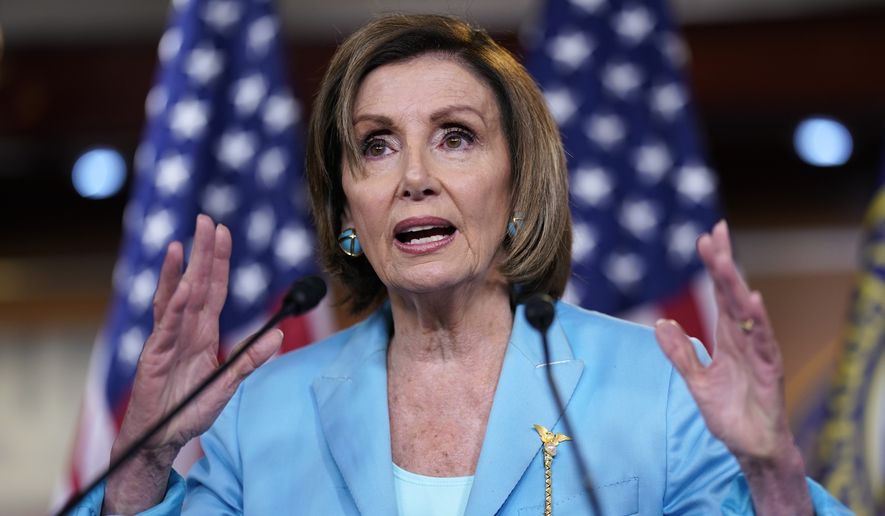Pressure is mounting on congressional Democrats and President Biden after 11 GOP senators signaled their support for a bipartisan infrastructure deal.
At the heart of the matter is whether Democrats can corral both moderates and progressives to line up behind the bipartisan compromise.
If not, the party risks splitting down the middle and being forced to rely on GOP votes — a feat that would put the leadership of both Senate Majority Leader Charles E. Schumer of New York and House Speaker Nancy Pelosi of California in question.
The reality is one that Democrats have been staring down since winning narrow majorities in both chambers of Congress last fall. In the Senate, which is split 50-50 between the parties, the situation is particularly dire as most non-spending legislation requires at least 60 votes to overcome a filibuster.
As such, progressive Democrats are threatening to oppose a $1.2 trillion infrastructure deal that has garnered the support of 21 senators, including 11 Republicans, if they do not receive concessions on climate change.
“We promised the voters action on climate. We must deliver,” said Democratic Sen. Jeff Merkley of Oregon. “No climate, no deal.”
Mr. Merkely and allies hope to withhold enough support from the package to force congressional leaders to make it “more green.”
Since that outcome is unlikely and would undermine GOP support, progressives are willing to settle for a guarantee that Democratic leadership will push through a “climate infrastructure” bill at a later date via budget reconciliation. The process allows spending bills to pass the Senate with a simple majority of 51 votes.
“If we’re looking at a deal on infrastructure going to the floor that does not have the energy investments in it and in which there has not been a deal worked out on reconciliation to have those energy investments,” said Mr. Merkley. “Then absolutely not, I will not support the package.”
If serious, progressives like Mr. Merkey could wind up causing serious damage to the bipartisan deal. The Congressional Progressive Caucus counts at least 92 Democrats among its membership in the House. Although no such association exists within the Senate, progressives make up at least a quarter of the chamber’s Democratic majority.
“My sense all along has been that they want to do it this way,” said Senate Republican Whip John Thune of South Dakota. “I think they believe they have a better chance of holding [all Democrats] in alignment, than working with us on an infrastructure bill.”
The problem, however, is that to secure a commitment on moving a climate-centered reconciliation bill all 50 Democrats are needed. At the moment, that seems unlikely, especially with moderate Democratic Sens. Joe Manchin III of West Virginia and Kyrsten Sinema of Arizona.
Both Mr. Manchin and Ms. Sinema have been key players in crafting the $1.2 trillion bipartisan infrastructure package. Neither has also shown interest in backing a big-spending reconciliation bill that couples both climate change and social spending.
“Put simply, there is a reason why they’re negotiating with Republicans, instead of huddling exclusively with their own party,” said one Democratic staffer close to the bipartisan group.
Mr. Manchin, himself, has balked at the demands of progressives, saying support for the mainline infrastructure package should not be “conditional.”
“I would never ask any of my colleagues for an iron-clad commitment … and I expect the same from them,” said the West Virginia Democrat.
Complicating matters is the question of where Mr. Biden, who has been out of the country meeting with foreign leaders, will come down on the issue. The White House initially held talks with a cadre of Republican senators on infrastructure but Mr. Biden chose to pull out after his calls for corporate and income tax hikes were rejected.
It remains unclear whether the president will opt to support the $1.2 trillion deal, which does not include tax increases. Mr. Biden’s silence, to date, only has empowered progressives.
“What we are working on right now is a budget that builds on the proposals that the president has brought to us,” said Sen. Bernard Sanders, a self-described socialist who is pushing a reconciliation-only route on infrastructure.
• Haris Alic can be reached at halic@washingtontimes.com.




Please read our comment policy before commenting.